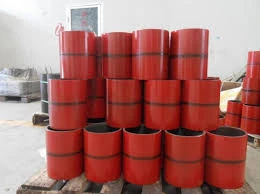- Afrikaans
- Albanian
- Amharic
- Arabic
- Armenian
- Azerbaijani
- Basque
- Belarusian
- Bengali
- Bosnian
- Bulgarian
- Catalan
- Cebuano
- Corsican
- Croatian
- Czech
- Danish
- Dutch
- English
- Esperanto
- Estonian
- Finnish
- French
- Frisian
- Galician
- Georgian
- German
- Greek
- Gujarati
- Haitian Creole
- hausa
- hawaiian
- Hebrew
- Hindi
- Miao
- Hungarian
- Icelandic
- igbo
- Indonesian
- irish
- Italian
- Japanese
- Javanese
- Kannada
- kazakh
- Khmer
- Rwandese
- Korean
- Kurdish
- Kyrgyz
- Lao
- Latin
- Latvian
- Lithuanian
- Luxembourgish
- Macedonian
- Malgashi
- Malay
- Malayalam
- Maltese
- Maori
- Marathi
- Mongolian
- Myanmar
- Nepali
- Norwegian
- Norwegian
- Occitan
- Pashto
- Persian
- Polish
- Portuguese
- Punjabi
- Romanian
- Russian
- Samoan
- Scottish Gaelic
- Serbian
- Sesotho
- Shona
- Sindhi
- Sinhala
- Slovak
- Slovenian
- Somali
- Spanish
- Sundanese
- Swahili
- Swedish
- Tagalog
- Tajik
- Tamil
- Tatar
- Telugu
- Thai
- Turkish
- Turkmen
- Ukrainian
- Urdu
- Uighur
- Uzbek
- Vietnamese
- Welsh
- Bantu
- Yiddish
- Yoruba
- Zulu
Casing Threads and Couplings in Oil and Gas Industry Applications
Casing Threads and Couplings Essential Components in Drilling Operations
Casing threads and couplings play a crucial role in the oil and gas industry, particularly in the context of drilling operations. The casing is a series of pipes used to support the walls of a newly drilled wellbore, ensuring that the hole remains stable and secure. As the drilling progresses, these casings protect the well from the surrounding geological formations and prevent contamination of the groundwater. The joints that connect these casing pipes, formed by threading and couplings, are vital for the integrity and functionality of the entire system.
Casing Threads Types and Specifications
Casing threads are detailed, helical grooves cut into the ends of casing pipes, which allow them to be screwed together securely. The quality and precision of these threads are paramount, as they must withstand significant pressures and stresses during drilling operations. Several types of casing threads exist, each with specific characteristics designed for various environmental conditions and operational requirements.
One of the most common types of threading is the API (American Petroleum Institute) thread, which includes specific forms such as short, long, and integral. API threads are widely recognized and standardized, ensuring that equipment from different manufacturers can work interchangeably. Other threading designs include premium threads, which offer enhanced sealing capabilities and are engineered to endure extreme conditions found in certain drilling environments.
Couplings The Lifeline of Casing
Couplings are short lengths of pipe that have female threads on both ends, serving to connect two male-threaded casing pipes. They are essential for forming a continuous casing string, allowing for expansion or retraction during pressure changes, which is critical in the dynamic environments of oil and gas wells.
The choice of couplings depends on several factors, including the depth of the well, the type of drilling fluid being used, and the geological formations encountered. Couplings must provide a strong seal to prevent fluid loss or contamination, and they should be compatible with the casing materials and dimensions. Depending on the requirements, couplings can be either standard or premium, with premium couplings offering advanced performance through improved design features.
casing threads and couplings

Importance of Quality and Material
The performance of casing threads and couplings is directly linked to the materials used in their manufacture. High-quality steel alloys are typically employed to produce these components, engineered to resist corrosion, wear, and fatigue. As wells become deeper and exploration moves into more challenging environments, the durability of casing threads and couplings becomes even more critical.
Regular inspections and maintenance of these components are essential to ensure their integrity throughout the drilling process. Failure of a connection can lead to catastrophic results, including blowouts or leaks, which can have severe environmental and economic consequences.
Technological Advancements
The evolution of technology in the oil and gas industry has led to significant advancements in the design and manufacturing of casing threads and couplings. New thread geometries and materials are being developed to enhance strength and sealing capabilities, even in extreme conditions such as high pressure and temperature.
Furthermore, the incorporation of non-destructive testing methods allows for detailed assessments of structural integrity before installation, ensuring that any potential failures are identified early in the process. As the industry continues to innovate, the future of casing threads and couplings looks promising, with ongoing improvements aimed at maximizing efficiency and safety in drilling operations.
In conclusion, casing threads and couplings are fundamental components of drilling operations in the oil and gas sector. Their importance cannot be overstated, as they ensure the stability, safety, and efficiency of well construction. As the industry progresses and challenges evolve, the continued focus on these key elements will be essential in sustaining successful drilling endeavors.
-
Tubing Pup Joints: Essential Components for Oil and Gas OperationsNewsJul.10,2025
-
Pup Joints: Essential Components for Reliable Drilling OperationsNewsJul.10,2025
-
Pipe Couplings: Connecting Your World EfficientlyNewsJul.10,2025
-
Mastering Oilfield Operations with Quality Tubing and CasingNewsJul.10,2025
-
High-Quality Casing Couplings for Every NeedNewsJul.10,2025
-
Boost Your Drilling Efficiency with Premium Crossover Tools & Seating NipplesNewsJul.10,2025







